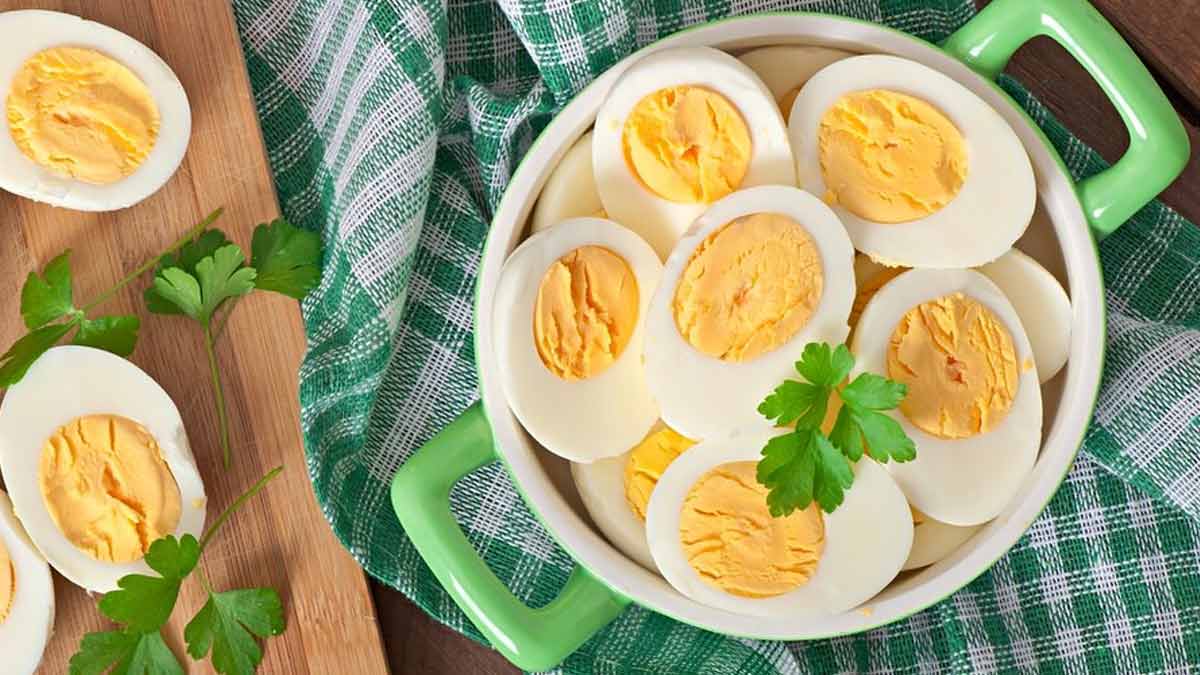
Cholesterol is a waxy substance that is mostly viewed in a bad light. This is because of its association with cardiovascular problems.
Eggs, a nutritional powerhouse, also contain cholesterol, which is why many people with high cholesterol are often concerned and hesitant about consuming them. But it is important to understand that not all cholesterol is bad or harmful for the body. Rather than completely excluding eggs from one’s diet, it is crucial to weigh the pros and cons and find out ways to consume them safely. In this article, we will try to unravel the same.
Table of Content:-
Also Read: Good Heart to Skin: 8 Health Benefits of Eggs & Its Other Uses
Are Eggs Safe To Eat With High Cholesterol?

Let’s start with the basics.
There are two main types of cholesterol: Low-Density Lipoprotein (LDL), or "bad" cholesterol, and high-density lipoprotein (HDL), or "good" cholesterol. Elevated LDL cholesterol in your blood can cause the buildup of plaque in your arteries, increasing the risk for Cardiovascular Diseases (CVDs). Over time, plaque can narrow the arteries or fully block them, raising the risk of a heart attack or a stroke. In contrast, HDL cholesterol helps remove excess cholesterol from the bloodstream, reducing the risk of heart diseases.
When it comes to eggs, they contain both LDL and HDL cholesterol. As per WebMD, a large egg contains about 186 milligrams of cholesterol, which is all in the yolk. However, it is important to note that dietary cholesterol, including that from eggs, has a relatively minor impact on blood cholesterol levels for most people.
A study published in the Journal Nutrients found that the consumption of eggs had only a small impact on cholesterol for the majority of the participants.
Another study, featured in the American Journal of Clinical Nutrition, examined data from 50 countries involving over 170,000 individuals. The findings indicated no noteworthy association between egg consumption and cholesterol levels, mortality rates, or major cardiovascular events.
According to Dr Hari Kishan, Senior General Physician, Kamineni Hospitals, LB Nagar, Hyderabad, the link between dietary cholesterol, like that in eggs, and blood cholesterol is complex and varies by individual.
He noted, “Eggs offer valuable nutrients like protein, vitamins, and minerals, including choline for the brain and compounds for eye health in the yolk.”
Therefore, rather than cutting out eggs from the diet, the doctor advised to strike a balance between the undeniable nutritional benefits of eggs and the need for cholesterol-conscious choices.
Also Read: Benefits Of Adding Eggs To Your Breakfast
How To Eat Eggs With Affecting Cholesterol Levels
Dr Kishan said, “For a heart-healthy approach to egg consumption, moderation is key.”
He added, “Choose healthier cooking methods like boiling , poaching, steaming, or baking instead of frying in butter to minimise added fats. Consider including cholesterol-free egg whites for protein if concerned about cholesterol. Balance your diet with nutrient-dense foods, watch portion sizes, and pair eggs with vegetables for added nutrients. Choose healthier fats like olive oil, and, for those seeking omega-3s, choose eggs enriched with these beneficial fatty acids.”
In an interaction with the OnlyMyHealth team, Dr Edwina Raj, Head of Services-Clinic Nutrition and Dietetics, Aster CMI Hospital, Bengaluru, recommended having one whole egg a day with additional egg whites for healthy adults.
According to a study published in the Korean Journal Food Science of Animal Resources, eating 2–7 eggs per week helped maintain high HDL cholesterol levels and reduce the risk of metabolic syndrome, whereas two or more eggs per day didn't have any significant effects.
Conclusion
While eggs contain cholesterol, experts believe having it in moderation can be beneficial for overall health. Due to its high nutritional profile, the benefits often outweigh the risk, so there is no necessity to exclude it from the diet. However, if you have been diagnosed with high cholesterol, it is always advisable to consult with a healthcare professional about your dietary concerns.
Also watch this video
How we keep this article up to date:
We work with experts and keep a close eye on the latest in health and wellness. Whenever there is a new research or helpful information, we update our articles with accurate and useful advice.
Current Version